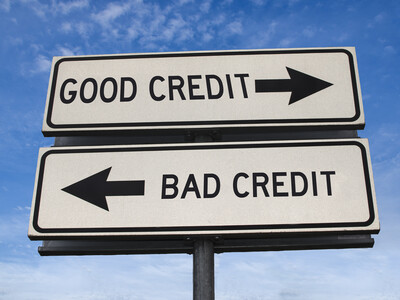
The unfortunate truth about bad credit is that you can't fix it overnight. Repairing your seriously damaged credit will be a long process, but it can be done.
Even with late payments, accounts in collection, repossession or bankruptcy, you can take steps toward a good credit rating. it just equires commitment, a willingness to do whatever it takes and a workable plan.
Here are nine must-include steps on your journey back to healthy credit:
- Check your credit report regularly. Three national agencies gather credit information on every consumer: Experian, Equifax and TransUnion. By law, when requested, each agency must provide a free copy of your report every year. If you are actively repairing your credit, you should check your reports at least every 6 months. Reviewing these reports ensures that the information is accurate and up to date. If you find an error, alert the credit-reporting agency that issued the report. Agencies have a process for solving disputes and an obligation to fix any errors.
- Seek help from the experts. If you are truly confused by the entire credit-rebuilding process, credit counseling can help you develop a plan. If you want, these agencies can act as a mediator between you and creditors. Understand, though, that you can often work with your creditors every bit as effectively as any third party. Also, be sure to steer clear of "credit repair" agencies. These are companies that charge huge amounts while promising to remove negative information from your credit reports. Remember that there is no quick and easy fix. There are plenty of scammers out there promising miracles, and your money is much better spent paying your bills.
- Put your initial focus on dealing with late payments. Pay special attention paid to the items that are easiest to fix, such as late payments and collections. Catching up late payments and then consistently paying on time will improve your credit.
- Reduce credit card balances. Typically, credit cards have very high interest rates. A large portion of each monthly minimum payment is applied to interest and not the balance. Anything extra you pay over the minimum payment goes directly toward reducing the balance. Pay more when you can, and never max out the balance on a credit card.
- Don't hide your head in the sand. None of us wants to call a creditor to admit that we're falling behind or discuss a missed payment, but stepping up and communicating with a creditor creates a sense of trust. Moreover, many creditors have procedures in place to help a borrower who has fallen a payment or two behind.
- Open accounts based on need. Different types of credit can positively factor into a credit rating, but avoid the temptation to open new accounts as a way to have a better credit mix. Assess your needs, and only open accounts that make the most sense for your personal situation.
- Go slow if you're new to credit. When considering your creditworthiness, a lender will weigh the average age of all your accounts. For borrowers with no credit history, opening a bunch of accounts too quickly will lower that average and your creditworthiness in the eyes of lenders.
- Strive for stability. Lenders look for employment and residential stability when reviewing applications for credit. Staying at one job and one address can help you get better credit offers over time.
- Build good credit with good habits. Like everything else in life, you get out of credit what you put in. If managed properly, credit card payments and installment loans can help improve your credit.
What it means to you: Achieving good credit is a marathon, not a sprint; the same goes for rebuilding credit. Hard choices, hard work and discipline, though, will get the job done.
Author
Russ Heaps
